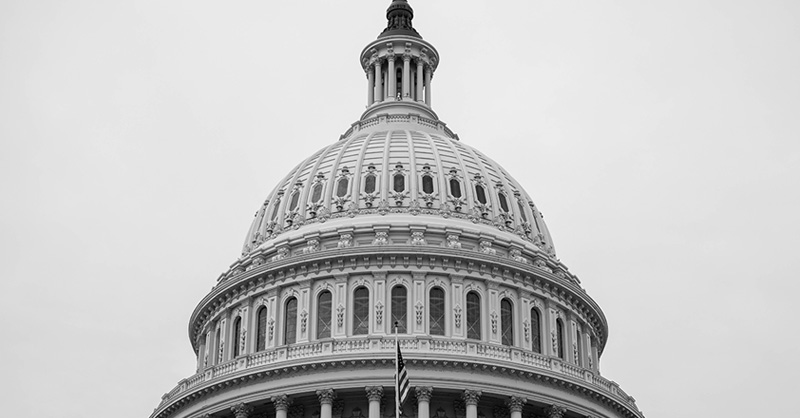Democratic-led FTC finds strong allies in House
12 February 2021 00:00 by Claude Marx

The Federal Trade Commission has gained allies on Capitol Hill as House Democrats appear willing to give the agency more money and power to go after companies that hurt consumers.
The chairman of the panel that oversees the agency said it needs more help partly because of lax enforcement practices during the Trump administration.
“Since the beginning of the pandemic, the FTC has issued numerous warning letters to companies allegedly selling unapproved products that claim to treat or cure Covid-19. But warning letters are nothing more than a slap on the wrist and do nothing to help consumers who may have already been harmed,” said House Energy and Commerce Committee Chairman Frank Pallone during a Feb. 4 hearing.
“Over the objections of Democratic commissioners, the FTC also settled case after case, failing to hold individual executives accountable or seek sufficient monetary penalties. And the FTC failed to initiate rulemakings that could help the commission efficiently pursue civil penalties,” he said.
But with a Democrat as acting chair of the commission and the prospect of having a 3-2 majority once President Joe Biden nominates two new commissioners, the New Jersey Democrat and others see this as a prime opportunity to bolster the FTC.
Last year, Congress passed legislation allowing the FTC to seek civil penalties for Covid-19 scams and deceptive practices. But the agency and its congressional allies don’t think that goes far enough. The commissioners and several lawmakers support giving the agency the power to issue civil penalties to first-time offending businesses. In addition, they want to amend the FTC Act to allow the agency to use Section 13(b) to give refunds to victims of fraud or deception.
The FTC is seeking the legislative relief in light of two federal appellate court losses and the skepticism surrounding the agency’s powers to recover ill-gotten gains as expressed by Supreme Court justices at oral arguments in AMG Capital Management LLC v. FTC.
Representative Tony Cardenas, a California Democrat, plans to introduce legislation that would ensure the agency has the proper powers to recover ill-gotten gains. At the Feb. 4 hearing of a House subcommittee on consumer protection and commerce, he said if the high court rules against the FTC, “the American people will pay the price.”
His spokesman told FTCWatch there isn’t a timetable for introducing the bill.
While two former FTC officials and a consumer advocate who testified at the hearing favor the legislation that Cardenas described, they were divided about whether lawmakers should wait until after the high court issues its ruling.
Former FTC Chairman Bill Kovacic said if Congress acted before the decision is announced, it could lead the justices to conclude “that the authority was never intended” when lawmakers passed Section 13(b) in 1973.
But Jessica Rich, a former FTC consumer protection bureau director, and Bonnie Patten, the executive director of Truth in Advertising, said lawmakers should act sooner because the agency’s enforcement powers have been hurt by the recent appellate court decisions.
It’s not clear how much support House Republicans would give Cardenas’ legislation.
Representative Cathy McMorris-Rodgers of Washington state, the top GOP member of the Energy and Commerce Committee, said she’s concerned the agency might use its new authority primarily to leverage defendants into settlements.
Some business groups are worried about increasing the agency’s enforcement powers. The US Chamber of Commerce didn’t respond to an e-mail seeking comment.
Last year, then-Senate Commerce Committee Chairman Roger Wicker, a Mississippi Republican, included language that the agency desired in draft privacy legislation. There has been no discussion yet of what might happen in this area in the Senate this Congress. The committee just began work, under Democratic control, after lawmakers approved an organizing resolution after weeks of negotiations. The chamber is split 50-50 between the parties with Vice President Kamala Harris breaking the tie, so the Democrats run the chamber and chair the committees.
When the FTC announced a $62 million settlement with Amazon to recover tips that the online retailing giant withheld from its drivers, acting Chairwoman Rebecca Slaughter and Commissioner Noah Phillips issued a joint statement saying with congressional help, the agency could have penalized the company more.
Slaughter and Phillips, who are often on opposite sides of issues, wrote the agency needs the power to impose civil penalties the first time a company in the gig economy engages in deceptive practices against its workers. They also called for broader rulemaking authority to address “systemic and unfair practices” against those workers.
During a Feb. 2 news conference about the settlement, Slaughter said the ability to penalize first-time offenses would enable the FTC to administer a “one-two punch” against bad actors.
But in response to a question from FTCWatch, she declined to predict the likelihood of Congress giving the FTC additional powers. She also didn’t say which legislation the agency wants the provisions included in.
At the Feb. 4 House hearing, Kovacic offered four suggestions to make the FTC a stronger enforcer.
Give the agency jurisdiction over common carriers, not-for-profit institutions, insurers, and banks, he said.
Next, raise salaries either by aligning the FTC’s pay scale with financial services regulators such as the Consumer Financial Protection Bureau or triple the agency’s $351 million budget, which would let the agency recruit more personnel.
He advocated for changing the government’s so-called “Sunshine Act,” so commissioners can deliberate more in open sessions while mandating more public disclosures about the reasoning behind the agency’s decisions.
Kovacic also recommended allowing the FTC to recruit administrative judges experienced in competition and consumer protection. There are government-wide standards for recruiting these judges, but they don’t take into account the policy needs of individual agencies, he said.
Related Articles
No results found
